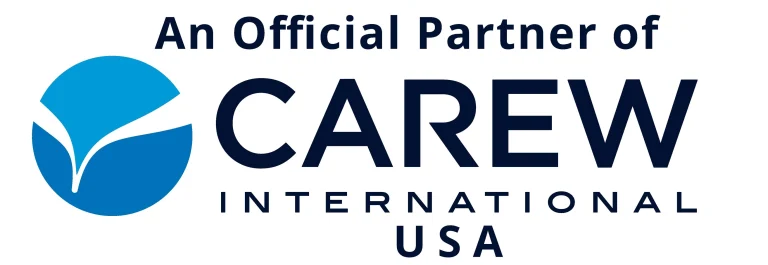Creating a safe, inclusive, and equitable workplace is no longer just an aspiration; it is a necessity in today’s professional world. The Prevention of Sexual Harassment (POSH) Act was enacted in India to ensure organizations take proactive measures to address and eliminate workplace harassment. POSH awareness training plays a crucial role in fostering a culture of respect and accountability, helping businesses combat discrimination effectively.
What Is POSH Awareness Training?
POSH awareness training is designed to educate employees about their rights, responsibilities, and the mechanisms available to prevent and address sexual harassment at the workplace. It provides a comprehensive understanding of the POSH Act, including the definition of sexual harassment, preventive measures, and the consequences of non-compliance. Through structured sessions, employees learn to identify inappropriate behavior, understand reporting mechanisms, and foster a safer environment for all.
The training also highlights the importance of maintaining professional conduct and treating colleagues with dignity. By addressing these aspects, it encourages accountability, teamwork, and a sense of belonging among employees.
Why Is POSH Training for Employees Essential?
1. Legal Compliance:
Organizations are mandated by law to comply with the POSH Act. Regular POSH training for employees ensures adherence to legal requirements, reducing the risk of penalties or reputational damage.
2. Awareness and Prevention:
Many instances of harassment stem from a lack of understanding about what constitutes unacceptable behavior. POSH awareness training helps bridge this gap, ensuring employees recognize and avoid actions that could lead to harassment complaints.
3. Improved Workplace Culture:
Training programs instill a culture of respect and equality. Employees feel more valued, and this leads to better collaboration and increased productivity.
4. Employee Confidence:
Knowing that the organization prioritizes its safety boosts employees’ confidence. They are more likely to report incidents without fear of retaliation.
5. Enhanced Reputation:
Companies with strong anti-harassment policies and training programs are viewed as responsible and ethical employers. This positively impacts recruitment and retention.
Key Components of an Effective POSH Awareness Training
To ensure the training achieves its goals, it must include the following elements:
1. Understanding Sexual Harassment:
Detailed explanations of what constitutes sexual harassment under the POSH Act, including examples and scenarios.
2. Legal Framework:
Overview of the POSH Act, its provisions, and the role of the Internal Complaints Committee (ICC).
3. Reporting Mechanisms:
Step-by-step guidance on how employees can report harassment and the support available to them.
4. Preventive Measures:
Emphasis on creating a culture of respect, bystander intervention, and proactive steps employees can take to prevent harassment.
5. Interactive Sessions:
Role-playing, case studies, and Q&A sessions help employees better understand and internalize the training material.
How POSH Training Combats Discrimination
While the primary focus of POSH training is on preventing sexual harassment, its impact extends to combating broader workplace discrimination. By addressing biases and encouraging dialogue, it:
- Reduces Gender Bias: Employees gain a better understanding of gender sensitivity, which helps reduce discriminatory practices based on stereotypes.
- Promotes Inclusion: The training fosters a mindset of respect and inclusivity, ensuring all employees, irrespective of their gender, feel valued and safe.
- Encourages Fair Treatment: Employees are educated about treating their colleagues equitably, leading to a more harmonious work environment.
Challenges in Implementing POSH Training
- Resistance from Employees: Some employees may view the training as unnecessary or overly critical of workplace behavior norms.
- Lack of Customization: Generic training programs may fail to address the specific needs or challenges of a particular organization.
- Insufficient Follow-Up: Without regular reinforcement, employees might forget the key takeaways from the training.
Tips to Ensure Effective POSH Training
- Engage Expert Trainers: Collaborate with professionals experienced in conducting POSH awareness training to deliver accurate and impactful sessions.
- Customize the Training: Tailor the program to align with the organization’s industry, workforce, and challenges.
- Encourage Participation: Use interactive formats to keep employees engaged and actively involved.
- Reinforce Regularly: Conduct periodic refresher sessions to ensure the learnings remain top of mind.
POSH awareness training is not just a legal mandate; it is a vital step toward creating an equitable and harassment-free workplace. It empowers employees, enhances organizational culture, and promotes a respectful environment where everyone can thrive. By investing in POSH training for employees, businesses demonstrate their commitment to upholding ethical practices and fostering a safe workspace. The long-term benefits from improved employee morale to enhanced reputation make it a cornerstone of responsible corporate governance.
About B-More Consulting: At B-More Consulting, we specialize in offering tailored solutions to enhance workplace environments, including comprehensive training programs like POSH awareness. Our expert-led sessions are designed to empower organizations to navigate challenges effectively and create inclusive, respectful, and compliant workspaces. Visit us at B-More Consulting to learn more about our services.





